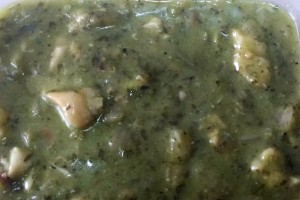When people ask to “tell me about your time in Spain,” what they are really asking is for a story. They want to hear a great story that puts them in the front seat of the sights, sounds, successes, failures, and above all the story that I went through myself. What I typically tend to do is present a bunch of jumbled up facts that don’t amount to much of a plot. But since my aim is to be a story marketer, I know that I need to obey the laws of “story.”
First of all, if I am in an interview, I am going to choose from the 7 basic story forms one that will be both appropriate, and put the great confusion of this time into a manageable framework. So, let’s walk down the list:
- Overcoming the Monster
Yeah, there were monsters to overcome, especially Spanish bureaucrats, but that wasn’t the overall picture of what I was accomplishing. There was no major resolution after the monster was overcome. - Rags to Riches
This would work if I had gotten rich or had decided to make a life in Spain. It might be the story later, after I go from making near nothing to earning well. - The Quest
I didn’t have any particular quest in mind, except perhaps self-discovery and to help create a greater society in America by bringing back with me what makes Spain a great place (and leaving the bureaucrats here). Possible. - Voyage and Return
This is the land of Robinson Crusoe – a strong possibility. This is the voyage that always had the plan of return, and self-knowledge is gained and the disorder in the world is resolved as a result of the voyage. Let’s see. - Comedy
This is where things that are normalized become chaotic, but eventually become righted again at the very end. This righting is usually the result of some self discovery or some self-knowledge. This is another strong possibility. - Tragedy
There has been some tragedy while here, but that isn’t the main arc of my time in Spain, nor do I think it’s a particularly appealing plot device for an interview. Skip. - Rebirth
I certainly have undergone renewal, and would say I am a different, more confident man at the end of this experience, but I didn’t have to sacrifice myself at any point. There is no willing giving up of self in order to have a new life in a new way. Skip this for now too.
So, that brings us down to two strongest options, Voyage and Return and Comedy.
To decide on this, I am going to go for what I think an interviewer wants to hear in particular, “why do you want to work for our company?” This means that making the plot point of “self discovery” to be the key moment (no matter where it falls in the plot), is essential. Therefore, the choice is simple: the story I tell to an interviewer should be a comedy since its form has a stronger connection to this self discovery moment.
Okay, one other thing, how does my “comedy” plot fit into the story marketing framework? If the client asks me the questions, how does that help the client be the hero? Well, keeping in mind that my job is to be more master Yoda and less Luke Skywalker, so I need to give my credentials.Even Yoda says, “For eight hundred years have I trained Jedi.”
Therefore, the story needs to give credibility for who I am and what I can offer.
Alright, this week, I’m going to try and tell my story of my time in Spain as a comedy. I’m gonna make it short, and try and tell it 5 different ways, all using the comedy framework. That’s my promise to you!







